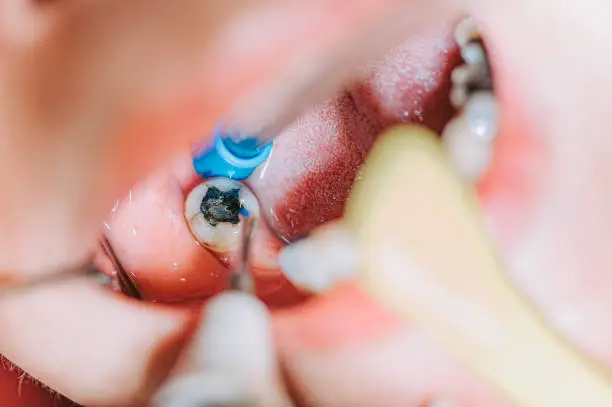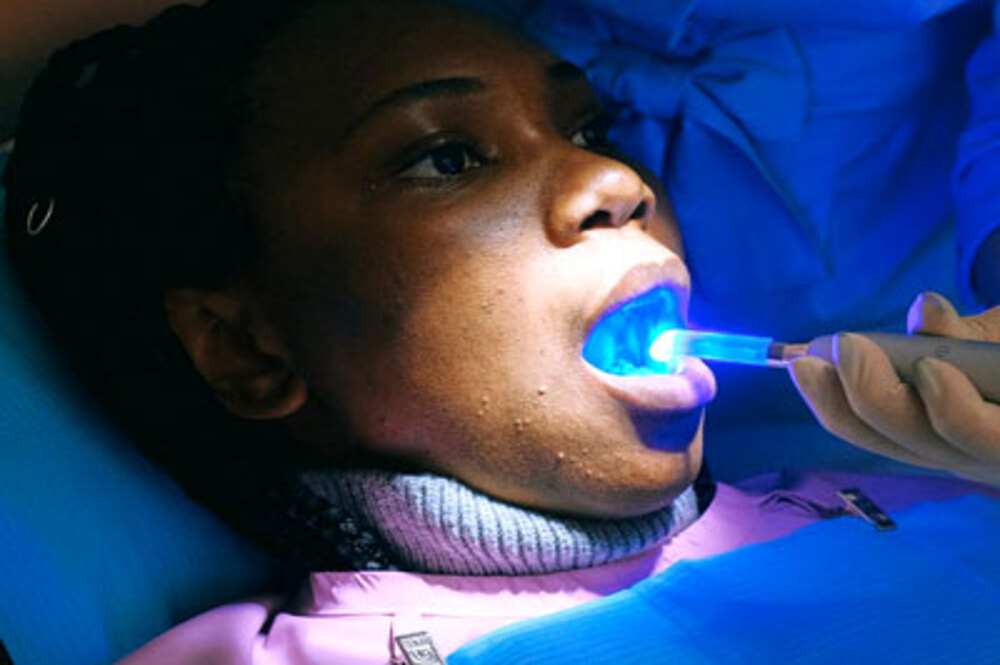Let’s discuss, what are signs and symptoms indicate, tooth/teeth may require root canal treatment.
Let’s get into little details of tooth anatomy & structure
tooth anatomy & its structure
Structure of the Tooth
Let’s understand the structure of the tooth.
- The outermost layer, the pearly white part of the tooth is known as the dental enamel. This is the hardest and strongest structure of the tooth.
- Under the enamel, there is a layer of dentin. This layer is comparatively softer.
- Lastly under this dentin there lies the core of the tooth known as the dental pulp. This is the part of the tooth that contains all the nerves and blood vessels. It gives nourishment and vitality to the tooth. This pulp is present even in the roots of the teeth.
Various Signs and symptoms of Root Canal
let’s see what happens when the tooth is decayed and has a cavity.
Sign 1
If the cavity is present only in the enamel or superficially in the dentin
Symptoms
Mostly the tooth will be asymptomatic. Meaning you may experience some food lodgement in the tooth cavity but there will be no pain or sensitivity to cold or sweet food.
At this point, you do not require root canal treatment. Restoration of the decayed part of the tooth can be enough in most such cases. (Through clinical examination and radiographic examination by the dentist is mandatory to decide the final treatment plan for every case)
Read Also – Root Canal in Children
Sign 2
If the cavity is in the dentin but is very close to the dental pulp
Symptoms
sensitive to cold, sour, and sweet. Momentary pain that vanishes immediately.
If you are experiencing sensitivity to cold water or ice cream, there is a good chance that the cavity is now deep enough and is approaching the Pulp of the tooth.
Sign 3
Irreversible pulpitis
Symptoms
in this situation, the pain persists longer even after removing the stimulus like lodged food particles. The dental pulp is inflamed and cannot recover immediately.
In this scenario, the treatment plan includes the removal of inflamed dental pulp tissue from the entire tooth. This is then followed by filling with inert material, that is root canal treatment. Painless Root canal treatment for reversible and Irreversible pulpitis can be done in a single visit.
Sign 4
If the cavity is extending up to the pulp but is painless.
Symptoms
- include large cavities with food lodgement.
- Occasional foul smell.
- Pus discharge from the tooth
- Pus discharge from gum region close to the tooth.
- Absence of obvious pain. Occasional dull pain.
Sign 5
Pulp necrosis
Symptoms
In such cases, the dental pulp is dead after tolerating all types of stimuli and it doesn’t respond to any temperature change or other stimulus. The necrosis of the pulp leads to Pus formation. This is then discharged either from the tooth or from the gum region forming a sinus tract in the gums. If neglected this can damage the bone surrounding the tooth.
The treatment plan for this scenario also includes the removal of necrosed dental pulp followed by filling with an inert material that’s root canal treatment.
The root canal treatment for necrosed pulp cases usually needs more than sitting to ensure complete removal of Pus and signs of healing.
Are you Searching for Signs of Root Canal Issues? Dentist Near Me in Erandwane
Spotting signs of potential root canal issues early on is vital for maintaining optimal dental health. In Erandwane, Microdent Dentistry offers expert care for prompt diagnosis and treatment. Led by Dr. Rohit Joshi, who specializes in root canal procedures, and Dr. Kashmira Joshi, focusing on dental implants, our clinic provides comprehensive solutions for various dental concerns. As your trusted Dentist Near Me, we prioritize patient comfort and satisfaction, ensuring a positive dental experience.
Experiencing Symptoms of Root Canal Problems?
- Persistent Tooth Pain: Don’t ignore persistent tooth pain, especially when biting or applying pressure.
- Temperature Sensitivity: Sensitivity to hot or cold foods may indicate nerve damage within the tooth.
- Swollen Gums: Swollen or tender gums could signal infection or inflammation in the root canal.
- Visible Infection Signs: Look out for a pimple-like bump on the gums, which may discharge pus or fluid.
Must Read – Root Canal Recovery Tips
Conclusion:
If you are experiencing the same signs & symptoms, then do visit our clinic for root canal treatment in Pune.
Depending upon the symptoms you are experiencing and the detailed check-up by your dentist, a radiographic assessment of the required treatment plan can be finalized for every tooth.
Frequently Asked Questions (FAQs)
1. What are the common signs that I may need a root canal?
The most common signs include severe tooth pain, sensitivity to hot or cold, swollen gums, pus discharge, and discoloration of the affected tooth. If you notice these symptoms, visit Microdent Dentistry in Erandwane for evaluation.
2. Is tooth pain always a sign of root canal infection?
Not always. Mild or temporary sensitivity may be due to enamel erosion or small cavities. However, persistent or throbbing tooth pain often indicates a deeper pulp infection that may require root canal treatment.
3. Can a tooth infection be painless?
Yes. In some cases, when the pulp inside the tooth dies (pulp necrosis), there may be no pain, but symptoms like pus discharge or gum swelling may appear. Such teeth still require root canal therapy to prevent bone damage.
4. How do dentists diagnose if I need a root canal?
Dentists perform a clinical and radiographic examination to check the extent of tooth decay, pulp health, and presence of infection before recommending root canal treatment.
5. Is root canal treatment painful?
Modern painless root canal treatments are performed under local anesthesia, ensuring complete comfort during the procedure. At Microdent Dentistry, Pune, we use advanced techniques for a smooth, pain-free experience.
6. How many visits does a root canal take?
Depending on the condition, root canal therapy can be completed in a single sitting for reversible pulpitis or may require two or more visits in cases of severe infection or pus formation.
7. What happens if I delay root canal treatment?
Delaying a root canal can lead to severe infection, pus accumulation, bone damage, and even tooth loss. Early treatment ensures faster healing and preserves your natural tooth.
8. Where can I get the best root canal treatment in Pune?
For expert and affordable root canal treatment in Pune, visit Microdent Dentistry in Erandwane. Dr. Rohit Joshi and Dr. Kashmira Joshi provide advanced endodontic care with high patient comfort and precision.
For more details
Please visit the website: https://microdentdentistry.com/
Contact Us: 7264008000 / 9021681032




